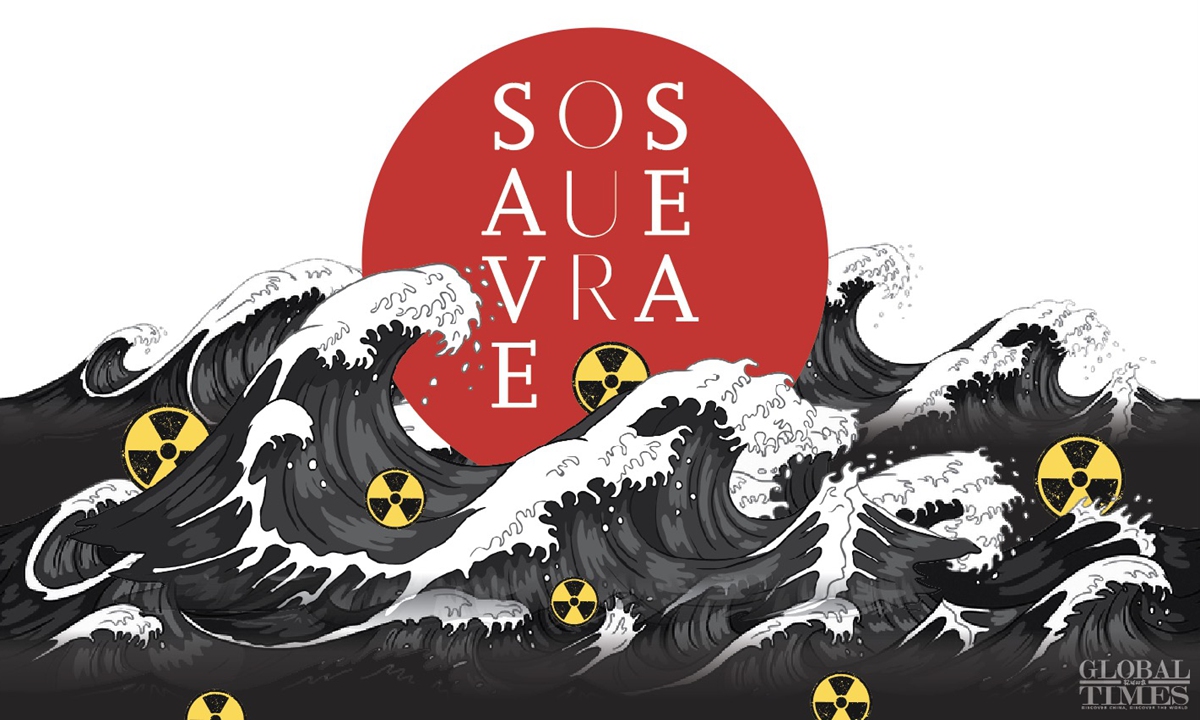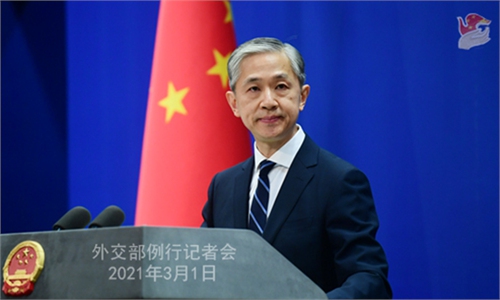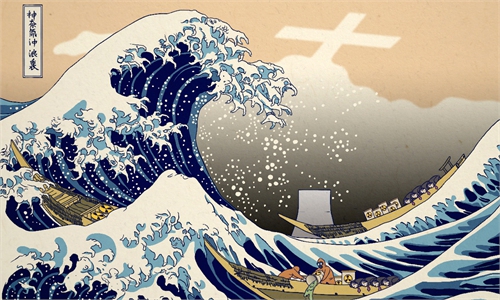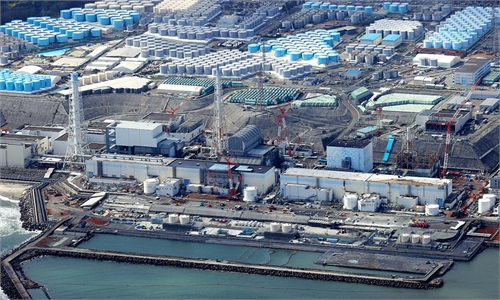Iconic Japanese artwork turns into satirical symbol over Japan's nuclear wastewater dumping
Japan’s public image crumbling after nuclear wastewater dumping decision

SOS, Save Our Sea. Graphic: Xiong Xiaoying/GT
The image of Japan as a nation dedicated to etiquette is on the edge of collapse among Chinese people over Japanese government's irresponsible decisions, including plans to dump Fukushima nuclear wastewater into the Pacific and leader's visit to a militaristic shrine, observers said.
Echoing South Korea's strong opposition toward the dumping, China's Foreign Ministry said on Wednesday it urged Japan to rectify the plan for nuclear wastewater dumping. "Don't let the people around the world pay for Japan's misdeeds," spokesperson Wang Wenbin said.
One of the great Japanese Ukiyo-e works, The Great Wave off Kanagawa, seen as a symbol of brave human beings who are able to face difficulties and forge ahead tenaciously, is now being turned into a satirical symbol on Chinese social media.
One adaption of the masterpiece, created by an illustrator from Dalian, Northeast China's Liaoning Province, recently became a hit with netizens on Chinese social media Sina Weibo.
The white spray at the crest of the waves was recreated as deformed human fingers, twisted babies, and mutated marine creatures struggling in the sea. Japanese bureaucrats in ties are bowing and apologizing for their wrong decision, while workers wearing protective clothing and gas masks pour buckets of nuclear wastewater into the sea.
The adaptation was named The Great Wave off Kanagawa Tritium.
The 1.23 million-plus tons of contaminated water that the Japanese government has decided to dump are estimated to contain many radioactive isotopes such as tritium or carbon-14, strontium-90, iodine-129 or cobalt-16, experts said.
The illustrator, who preferred not to be identified, told the Global Times that he feels terrible about Japan's decision, adding that the illustration is his own way of protesting it.
"All the details of my design are intuitive, and I hope the painting will be understandable to Chinese, Japanese or Westerners… The consequences for all of humanity will be as the painting depicts, if Japan eventually dumps the nuclear-contaminated water," he said.
The illustrations inspired a wave of imitations on Sina Weibo, with more talented Chinese netizens producing their own creations. Some of them chose to use fluorescent green as the sea color to illustrate a toxic ocean and bizarre mutant marine animals after being polluted by the radioactive water.
Expressing their deep disappointment toward Japan, some netizens said it is killing its image as a nation of civilized etiquette and persistence in environmental protection. The Japanese government "will pay for its rabid evildoings one day," said one.
Distrust among Chinese in relation to Japan is still heating up, especially after Japanese Prime Minister Yoshihide Suga on Wednesday sent a ritual offering to the Yasukuni Shrine, which is viewed by countries that were invaded by Japan, including China and South Korea, as a symbol of Japan's past militarism and lack of repentance for its war crimes.
Some netizens said that "the idea of militarism has been in their minds, and the nuclear-contaminated water dumping can be viewed as another kind of invasion."
The Yasukuni Shrine honors 2.5 million Japanese war dead including 14 Class-A convicted war criminals in World War II along with its historically inaccurate museum. The Shinto shrine has long been a source of diplomatic friction between Japan and its neighbors.
Wang Shaopu, a Japanese studies scholar at Shanghai Jiao Tong University, elaborated to the Global Times that Japanese culture is usually represented by two extreme impressions among Chinese people. One is its positive image of being a civilized nation, while the other is its militarism and invasive mentality.
The Suga administration's insistence on dumping nuclear-contaminated water in disregard of opposition from the international community and the domestic public fully exposes its hypocrisy and ugly true colors, Wang said.
Expressing opposition by redesigning an internationally renowned composition may be interpreted as an offense to its culture, but such voices from netizens reflect how Chinese people in general view the Japanese government's decision, Zhang Yiwu, a professor of cultural studies at Peking University, told the Global Times on Wednesday.




